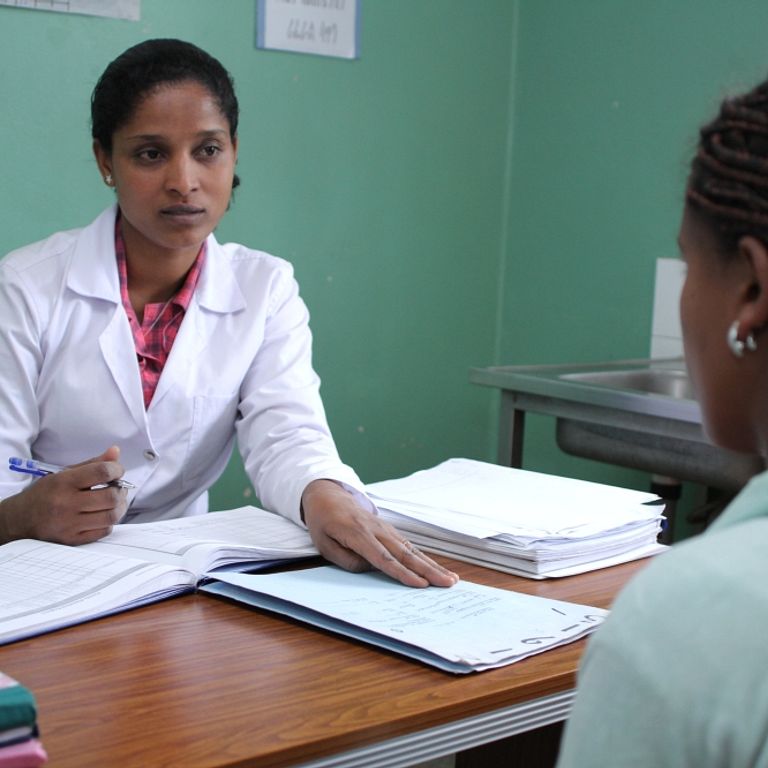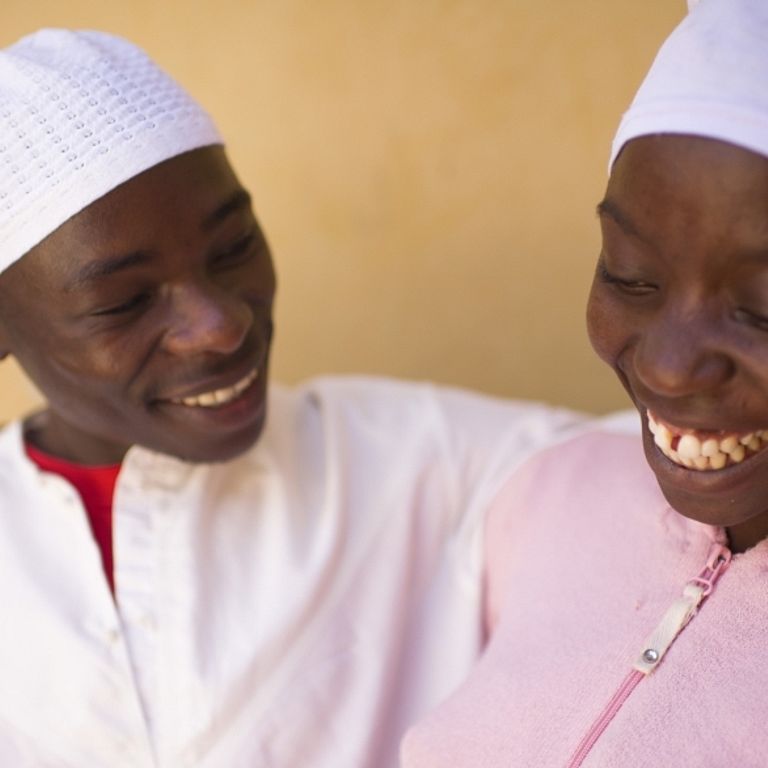Provision of Life-Saving Protection and Gender-Based Violence Assistance

Through the Provision of Life-Saving Protection and Gender-Based Violence Assistance project, funded by UNICEF, EngenderHealth is addressing the emergency humanitarian needs of conflict-affected internally displaced persons (IDPs), returnees, and host communities in Abaala and Berhale districts of the Afar region in Ethiopia. In this program, we are strengthening our ongoing efforts to address the high levels of gender inequality, which the secondary effects of the conflict in Ethiopia have exacerbated. EngenderHealth is partnering with UNICEF, the Afar Regional Bureau of Women and Social Affairs, and the Afar Regional Health Bureau.
According to the Internal Organization for Migration, 4.3 million people have been internally displaced across Ethiopia as of June 2023. Conflict is the primary cause of displacement and has displaced 2.9 million people. They estimate that 3.2 million IDPs returned to their regions during that same time. In the Afar region, 194,968 IDPs have returned as of June 2023, one of the country’s highest numbers of returning IDPs. Conflicts and instability have hampered the delivery of essential services, disrupted livelihoods, and exacerbated protection risks—including risks associated with GBV, disproportionately affecting women, girls, and adolescents. The inability to access essential services, including SRH services and GBV care, can lead to serious human rights violations, increased maternal and infant morbidities, mortalities, and psychological trauma.

This project will also build on EngenderHealth’s recently completed 30-month SRHR Response for IDPs program and our long-term A Rights-Based Approach for Enhancing Sexual and Reproductive Health and Rights (SRHR) program, both of which supported the humanitarian response to the conflicts and emergencies in Ethiopia. Through those programs, we learned the need for integrating a comprehensive GBV response to address the needs of IDPs, returnees, and host communities. This program improves awareness of GBV services and increases the number of people seeking services by strengthening service referral pathways, decentralizing and improving GBV response coordination, and enhancing collaboration between key stakeholders. EngenderHealth works with regional and national stakeholders, including the Bureau of Women and Social Affairs, regional health offices, health facilities, one-stop centers, community volunteers, and local women and girls’ safe houses and shelters. Program activities include mainstreaming gender-sensitive activities to minimize the secondary effects of the humanitarian crises and protect the most vulnerable households and individuals. This program utilizes our gender, youth, and social inclusion (GYSI) tools to ensure that all program activities are impactful, gender-transformative, youth-friendly, and socially inclusive.
Humanitarian crises often contribute to existing gender inequality and exacerbate GBV. According to UNICEF, humanitarian crises also “weaken a society’s ability to protect women and girls from gender-based violence.” By integrating holistic GBV services with services for emergency humanitarian needs, EngenderHealth and our partners are working to ensure that all survivors of GBV have access to the services they need.

